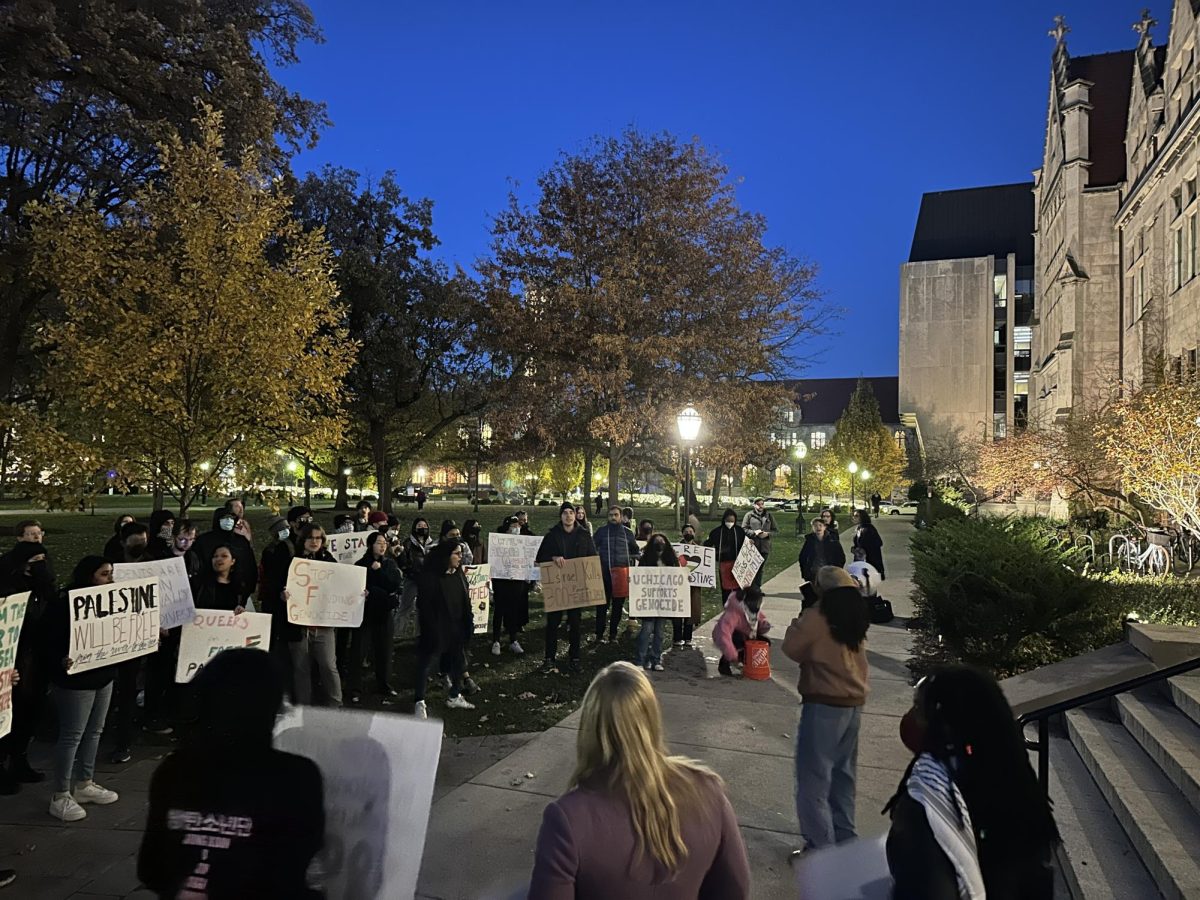“From the University’s first days, its leaders viewed urban engagement as a priority and the City of Chicago as a partner in developing innovative solutions to society’s most pressing needs…. It is our insistence on understanding underlying causes, our persistence in pursuing the data that creates new knowledge and better solutions, and our productive civic collaborations that make us a leader in addressing urban issues.”
–University of Chicago Communications, Mission and Values
On November 19, 2007, a University of Chicago Ph.D. student was mugged, shot and killed at 61st Street and Ellis Avenue. The shooting of Amadou Cisse shook the campus to its core. A year later, the University of Chicago opened the Crime Lab to find solutions to urban violent crime. However, since then, the Crime Lab has struggled against constant impediments to pursue gun research. Most of the Lab’s funding comes from private foundations because of the limited federal dollars set aside for gun research. Additionally, because U.S. law prohibits the use of gun trace data for research purposes, the Crime Lab has been unable to adequately address the pertinent question of where illegal guns come from.
The University of Chicago is revered as one of the greatest research institutions in the world, and that reputation is well-earned. The University includes, “developing innovative solutions to society’s most pressing needs” as a core part of its mission—something that students and faculty are called upon to pursue. The question then arises: What should the University do when its ability to derive solutions to a pressing societal need, especially one that hits incredibly close to home, is thwarted?
Gun violence research has had a target on its back for decades. Most people have not heard of the Dickey Amendment, and those who have may not understand why it caused such a national freeze on gun research. The amendment was passed in response to a 1993 New England Journal of Medicine article that found that simply keeping a gun in the home was strongly associated with an increased risk of homicide. Seeing this project as an effort to advocate for gun control, the National Rifle Association (NRA) campaigned to eliminate the Centers for Disease Control and Prevention’s [CDC’s] National Center for Injury Prevention and Control, the organization which had funded the study. In response, Congress passed the “Dickey Amendment” in 1996, which declared that “none of the funds made available for injury prevention and control at the Centers for Disease Control and Prevention may be used to advocate or promote gun control.”
To many, this statement may seem obvious. As scholars and researchers, we know that good research must be unbiased. It should convey objective findings, not “advocate or promote” certain points of view, especially when these perspectives necessarily influence the nature of the research itself. So why did gun research need its own declaration of objectivity?
Following passage of the bill, Congress stripped and reallocated the meager $2.6 million dedicated to firearm research in the CDC—but funding wasn’t the only problem generated by the Dickey Amendment. By making it clear that those in power would be monitoring gun research closely, the Dickey Amendment effectively silenced individuals seeking to engage in the study of firearms. The words “gun” or “firearm” had to be removed in order to secure government funding, a publication, or even an advertisement. The implications of this piece of legislation are significant. The Dickey Amendment represents a condoned use of fear tactics against those who want to study guns.
A recent study from the Journal of the American Medical Association comparing the top 30 causes of death in the U.S. showed that from 2004 to 2015, CDC funding for gun violence research received 1.6 percent of the funding predicted based on its associated rate of mortality. The following year, Chicago set a record for homicides, reaching 762 deaths. As a University that recently opened a new Level I trauma center, we would hope efforts to find evidence-based solutions for gun violence would grow exponentially. But will young academics—like ourselves—be discouraged from making a career of this work? Will the lack of grants available for this kind of research deter them from the field, into a more lucrative and supported one?
The University is notoriously cautious when it comes to taking public stances on social issues. The Kalven Report of 1967 explains the University’s reasons for this silence, including protecting the free expression of all viewpoints on campus. However, the Kalven Report also states, “From time to time instances will arise in which the society, or segments of it, threaten the very mission of the university and its values of free inquiry.” “In such a crisis,” the Report explains, “it becomes the obligation of the university as an institution to oppose such measures and actively to defend its interests and its values.” The University has finally fulfilled a commitment to the City of Chicago by opening a new trauma center, and should consider it mission-central to study the causes of trauma. The significant barriers to gun violence research impede the University’s ability to do so. At what point must the University ask itself what it must do to defend its freedom to inquire?
Kavia Khosla, Gena Lenti, and Katie Ellis are first-years at the Pritzker School of Medicine.









